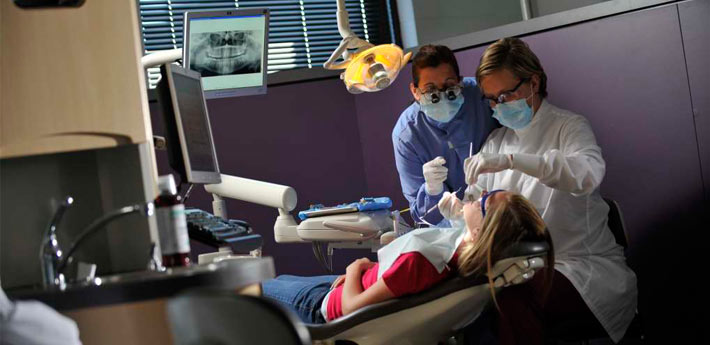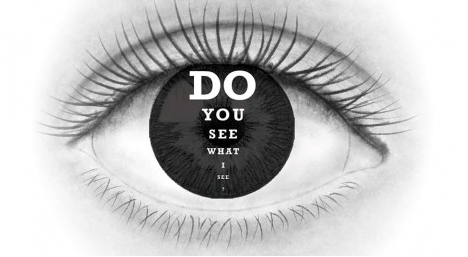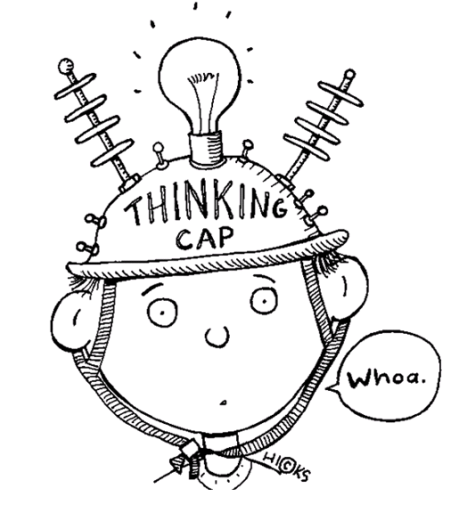It’s becoming clearer to me why it is so important for educators to understand where their students are coming from, meaning what is their social background? What is their perception of what I am teaching? Do they understand? Am I challenging them enough? Or too little? Over the past few weeks I have found a few things particularly insightful. This past week I finished reading one of the supplemental reading materials for the class, Making Learning Whole: Seven Principles of Teaching Can Transform Education by David Perkins. The author’s ideas are thoughtful, intelligent, clever and adaptable. Although I found all seven principles to be constructive, I’d like to focus on the fifth and sixth principles: Uncover the Hidden Game and Learn From the Team…and Other Teams. The most recent discussion in class was interesting too, that of cognitive illusions. I’ve titled this blog post “Get to the Point…Because You’ve Lost Me!” because I feel it summarizes my personal feelings about experiences I’ve had as a student when the information that was being taught, just didn’t “click” to me. What I’ve learned in the past few weeks has enlightened me as to how I can teach students in a manner they can relate.
“Uncover the Hidden Game”
You can think of this as discovering the strategy behind what makes the “doing” part of what is learned possible. What is it that makes someone really good at what they do? It’s the details, the step-by-step approach that is sometimes intuitive, something we just know because it is. This is what we need to help students to discover. When students learn the skills or necessary steps (even if they seem obvious) to really excel at doing something, only then are they equipped to understand the complexity of learned material and how it relates to the “big picture.” To give you an idea of the hidden game within the field of dental hygiene, there is the “game” of time management. There are a number of things that need to be addressed within a dental hygiene appointment and having the skills to do so are not necessarily something you explicitly learn how to do in school. Interpersonal skills are an essential skill for dental hygienists because they work to build constructive, professional relationships with their patients, dentists, assistants and other dental hygienists. Just because a hygienist knows how to scale teeth, does not make them good at their job. Teaching students the essential skills while also helping them to discover the hidden games will assist them in better understanding and job performance (Perkins, 2009).
“Learn From the Team…and Other Teams”
Perkins’ sixth principle discusses how participation structures can engage learners in a social interaction that fosters learning from others, learning together and learning how to apply concepts in other contexts (Perkins, 2009). In my work as a hygienist we may recognize this as a community of practice – like a Facebook group for dental hygienists. The community offers support and guidance to find and/or offer solutions to practice-related issues. It is a place for learning and sharing experience, so that those with greater experience can share to those with little. In a similar manner, “newbies” contribute fresh perspectives of which those with experience may not have considered.
Some of the teaching strategies Perkins (2009) suggested are: Pair Problem Solving, Cross-age Tutoring, Studio-Learning, Debate, Jigsaw Methods and Problem-based Learning. All of these I think can be adapted for dental hygiene education. One of the things I’ve always thought would’ve been nice as part of my education is the idea of Studio-Learning (Perkins, 2009) for learning about the process of a dental hygiene services in a real “appointment” setting. It would give students the opportunity to watch how a dental hygienist works “in the real world,” but in school where students can ask questions, critique the process and reflect on their own practice. This strategy would enable students to “Learn from the Team” and to “Uncover the Hidden Game.”
Cognitive Illusions
Cognitive “illusions” are pieces of information that has been conceptualized incorrectly, basically bad information that is regarded as true by an individual (Cognitive Illusions, 2011). Sometimes these illusions can be controlled to some degree by the individual, but more often than not it is a misperception that cannot be interpreted by the person in any other way. Every so often this may mean that students will need to unlearn or rectify their illusions first in order to create an appropriate new connection of the information in their mind. This is easier for students and teachers to accomplish if the illusions are known, but unfortunately this is often not the case. For this reason, it’s important for us as educators to think outside of the “box” to present information not only from our perspective but from others’ as well. In my early experience as a dental hygiene student I recall an illusion I held about exploratory (examining) strokes with curettes. I thought that it was necessary to apply pressure to the tooth surface as I explored and because I thought this was the right way I had trouble adapting any related information the teacher provided. The illusion I held about exploring limited my ability to perform the skill effectively. It took a few attempts from different instructors on separate occasions to “get through” to me where I was finally able to let go of the illusion and truly perform.
The topics I’ve discussed here, in addition to the others I’ve mentioned in the previous two posts will help me to find ways that make learning meaningful, interesting for me personally, and applicable in other areas of my life. As a future educator these connections are worthwhile and I’m taking them with me!
References
Perkins, D. (2009). Making learning whole: How seven principles of teaching can change education. San Francisco: Jossey-Bass
Cognitive Illusions. (2011). World-Mysteries. Retrieved February 19, 2015 from: http://www.world-mysteries.com/illusions/sci_illusions3.htm
Additional Sources
Pair Problem Solving, also known as Think Aloud Pair Problem Solving (TAPPS). http://oncourseworkshop.com/interdependence/think-aloud-pair-problem-solving/
A research article – The dark side of cognitive illusions: When an illusory belief interferes with the acquisition of evidence-based knowledge.
Yarritu, I., Matute, H. and Luque, D. (2015), The dark side of cognitive illusions: When an illusory belief interferes with the acquisition of evidence-based knowledge. British Journal of Psychology. doi: 10.1111/bjop.12119 http://onlinelibrary.wiley.com/doi/10.1111/bjop.12119/full
What can we learn from cognitive illusions, art, and children? Drawing the Light by Black Elephant Blog https://blackelephantblog.wordpress.com/2015/02/17/drawing-the-light/


